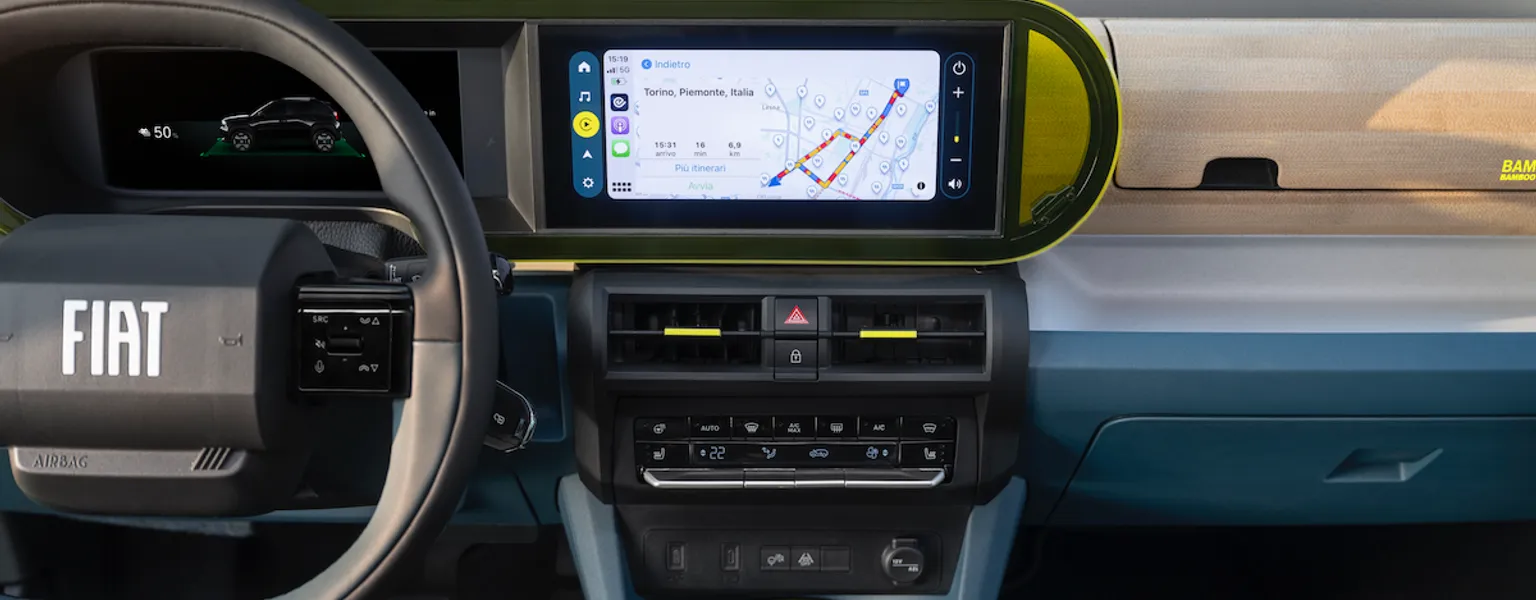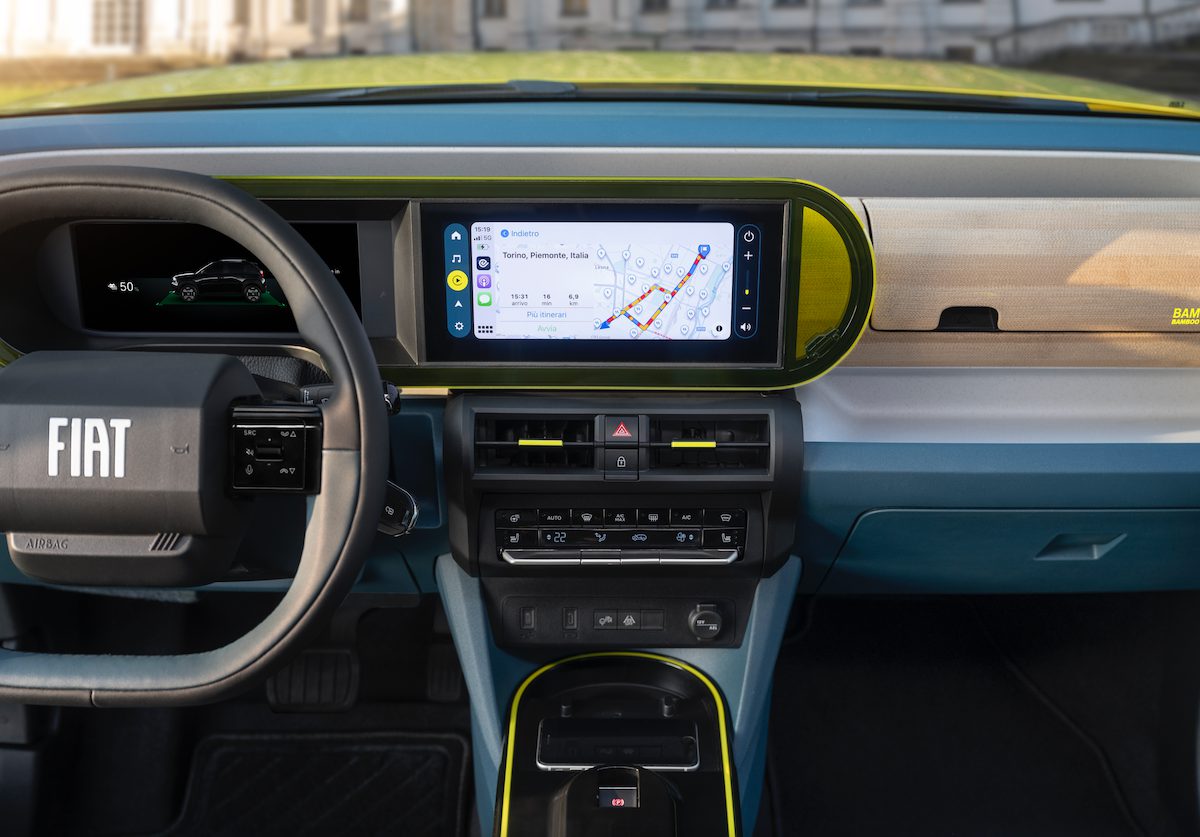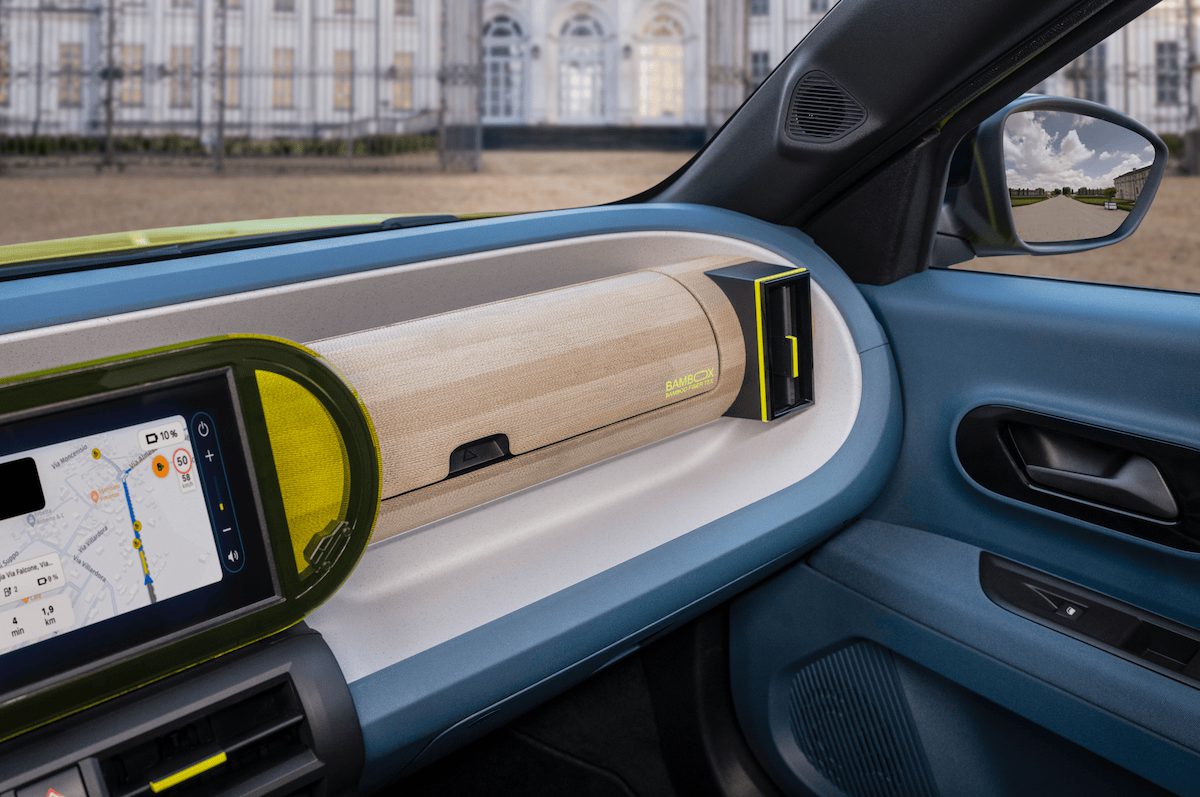Fiat unveils car featuring parts made from recycled beverage cartons

Sustainability
Beverage cartons have found a new life as part of a groundbreaking development for the automotive industry. With the launch of the latest model of Fiat Grande Panda, Fiat has become the first car manufacturer to incorporate recycled materials from used beverage cartons in a vehicle.
Each Fiat Grande Panda contains recycled material from the thin layers of polyethylene and aluminium used in 140 beverage cartons. This recycled material is used inside the plastics of the car’s interior. Specifically, it is used in the central console, dashboard, interior front and rear door panels.

PolyAl is a combination of polymers and aluminium components recovered during the recycling of beverage cartons. Beverage cartons are made of, on average, 70% paperboard, 25% polymers and 5% aluminium. This combination of materials is the key to aseptic packaging, where ultra-thin layers of aluminium and polymers protect the food or beverage inside, extending the product’s shelf life without the need for preservatives or refrigeration.
While the paperboard from beverage cartons can be transformed into valuable paper-based consumer products such as tablecloths, napkins, and toilet paper, Tetra Pak has been exploring and expanding commercial applications for the remaining polyAl in collaboration with compound producers and recyclers.

The Fiat Grande Panda components are made using a polyAl-based compound called Lapolen Ecotek, produced by Lapo Compound. The company worked with Fiat to ensure this material was competitive in quality and price. The placement of the material in such visible parts of the interior, rather than in hidden areas, clearly demonstrates the material’s aesthetic potential. Fiat chose the material for its shimmering effect, created by the aluminium content of the recycled material, and because Lapo Compound was able to precisely match the specific shade of blue required.
The move to incorporate material from recycled beverage cartons aligns with Fiat’s mission to produce more sustainable and affordable cars with its “less is more” approach, removing redundant parts and reducing polluting materials such as chrome and leather.
Fiat’s use of the polyAl material in the Fiat Grande Panda showcases that this recycled material can now be utilised on a large scale by the automotive industry. The car is already on the market in most European countries, and will be available outside Europe by the end of the year.
This collaboration with Lapo Compound puts Fiat well ahead of the EU Commission’s End-of-Life Vehicles Proposal, which sets a target of 25% of plastic used in vehicles coming from recycled materials. Lapo Compound’s solution helps the industry achieve this goal by providing recycled materials which meet its strict quality standards while maintaining consistency.
In addition to its automotive applications, Lapo Compound is also conducting trials for other uses of the polyAl-based compound Lapolen Ecotek, including outdoor furniture and factory floors.
Giuseppe Crisci, General Manager at Lapo Compound, said: We believe in creating products that not only meet strict quality standards but also help contribute to a circular economy by keeping valuable materials in use. Our product innovation has successfully met this technical challenge for Fiat, which is testament to our dedication to sustainable innovation that supports a journey toward a more circular, responsible future.
Kinga Sieradzon, Vice President Sustainability Operations at Tetra Pak, said: The use of recycled materials from beverage cartons in the Fiat Grande Panda is a fantastic demonstration of their vast potential across multiple industries. It's a powerful example of how sustainable solutions can drive innovation and reshape traditional manufacturing. This is a great result of collaboration. By working together with companies like Fiat and Lapo Compound, as well as engaging with governments and consumers, we can drive the systemic change required to expand the end market for recycled materials. This collective effort is crucial for building a more circular economy and ensuring a sustainable future for our planet.
This article was originally published by Tetra Pak.
Related News
-
Supplier News
Costco to sell planters made from recycled cartons in collaboration with Tetra Pak & Keter
-
Sustainability
Tetra Pak transforms used beverage cartons into transport crates
-
Business
New grant programme to boost food and beverage carton recycling in U.S. and Canadian schools
-
Supplier News
Swiss customer reorder for Aopack carton box maker machine
-
Business
World’s first FSC®-certified paper-based aseptic milk carton launched




